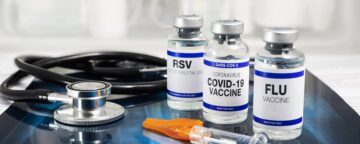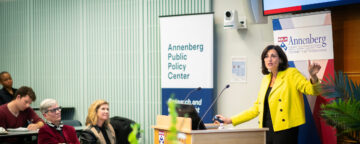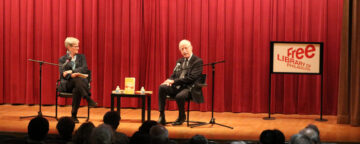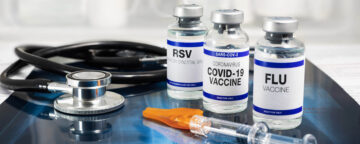We've compiled a list of essential FactCheck.org reads about Secretary of Health and Human Services nominee Robert F. Kennedy Jr. and his remarks about vaccines, autism, Covid-19 and other topics.


We've compiled a list of essential FactCheck.org reads about Secretary of Health and Human Services nominee Robert F. Kennedy Jr. and his remarks about vaccines, autism, Covid-19 and other topics.

An APPC survey finds that RSV vaccines to protect older adults and newborns have become more widely accepted by the public over the last year.

In the annual Annenberg Lecture, former CDC Director Rochelle Walensky explored the complexities of communicating public health information.

Former NIH director Francis Collins and APPC's Kathleen Hall Jamieson discussed science, faith, trust, and Collins' new book "The Road to Wisdom" at the Free Library of Philadelphia.

APPC health survey data finds that belief in vaccination misinformation has risen, and a willingness to vaccinate against Covid-19 is lower than in the past.

A comprehensive meta-analysis from a research team led by the University of Pennsylvania examines what types of vaccine intervention strategies have the greatest effect in increasing vaccination.

New survey research shows that Black Americans' knowledge about the COVID vaccine increased over time, and this increase was associated with their receipt of the vaccine.

New survey shows over a third of U.S. adults worry that they or someone in their family will get flu, Covid-19, or RSV in next 3 months, but no consensus on which virus is more likely to cause severe illness.